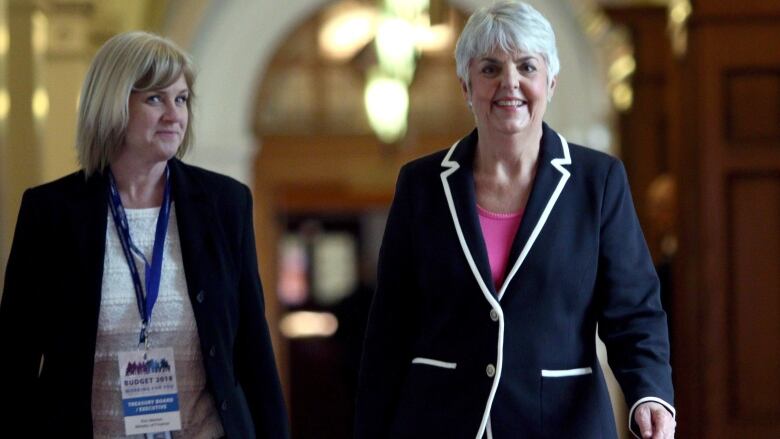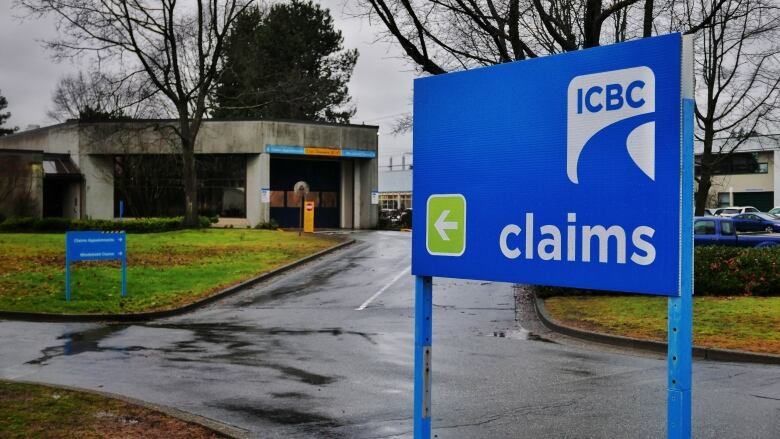NDP budget gets exclamation marks for spending and question marks for future revenue
Delivering on spending promises without going into deficit requires several economic models to come true

For months, when asked question after question abouttheir election pledges, John Horgan and the B.C. government would respond,"wait for the budget."
They weren't kidding.
There is spending on new housing: $181 million next year.On childcare: $182 million next year.On health care and education: $127 million.
There were promises kept on B.C. Ferries: a fare freeze on major routes, a 15 per cent reduction on minor ones and a speculation tax oftwo per cent starting next year.
It was the type of big spending, platform-fulfilling budget that any NDP partisan would appreciate right down to the way Finance Minister Carole James framed the proceedings.
"A budget is more than revenue and expenses. A budget is about people. It's about the kind of communities we want and the kind of future we want," she said.
- 10 big decisions the B.C. government will make in this legislative session
- NDP government introduces new speculation tax, eliminates MSP premiums in its 1st budget
But a budget is, at its core, about revenue and expenses.
Andwhile this year the government is projecting a $151 million surplus, a lot of untestedeconomic models will have to be realized for their future projections of surpluses to come true.

ICBCreforms
The governmentadmitted as much in itsfirst table in the budget document, which shows basic revenues, expenses, capital spending and provincial debt over three years.
There's a new line that wasn't in previous budgets. It's called "surplus before ICBC impacts."And it shows a projected $903 million surplus for next year but also a projected $1.076 billion loss from ICBC.
That would cause a deficit of around $200 million, if not for the "estimated impact of ICBC product reform," which includes a variety of reforms announced by Attorney General David Eby earlier this month including caps on pain and suffering for minor injuries thereby saving ICBC $392 million this year, according to the government.
- ICBC placing $5.5K cap for pain and suffering on minor injury claims
- ICBC a 'financial dumpster fire,' says B.C. attorney general
Yet, just two weeks ago,Eby said estimates of how much reforms would save ICBCwas extremely preliminary, because there's no way of knowing to what extent the reforms willinfluence drivers and trial lawyers.
"These are pieces that we don't know. We can look at other jurisdictions where they've done thatand make some educated guesses, but we might have to make refinement going forward to respond to the changes on the ground," he said.

Tax projections
But the government is estimating the amounts of those recoveredICBC revenues: $392 million for 2017-18 and $780 million for the following fiscal year.
It's also counting on money gained from the new payroll tax that replacesMSPpremiums ($1.85 billion by 2019-20), the new speculation tax ($200 million by 2019-20), and the extra two per centproperty transfer tax on residential properties sellingfor more than$3 million (another $200 million by 2019-20).
The new taxes are the primary reason why even though the B.C. Liberalsin their last budgetforecasttaxation revenue of $28.4 billion for 2019-20,the NDPisprojecting substantially more: $33.5 billion an increase of $5.1 billion.
It's a lot of new revenue that is based onbusinesses, the wealthy and the housing industry continuing along the same fiscal pathway of strength, despite the new taxes, which may explain some of thediscontent coming from these groups.
"This is now a cumulative effect that's actually going to erode our ability to compete,"said B.C. Chamber of Commerce CEO Val Litwin.
"It's really robbing Peter to pay Paul," said Kris Sims, a spokesperson for the B.C. chapter of the Canadian Taxpayers Federation.
Of course, the NDP may not mind having these groups as foes, followingan election where itcampaigned on making life more affordable for the average British Columbian.
But while this budget was all about putting exclamation points on campaign promises, future oneswill likely be dealing with all the question marks.












_(720p).jpg)


 OFFICIAL HD MUSIC VIDEO.jpg)
.jpg)



























































































